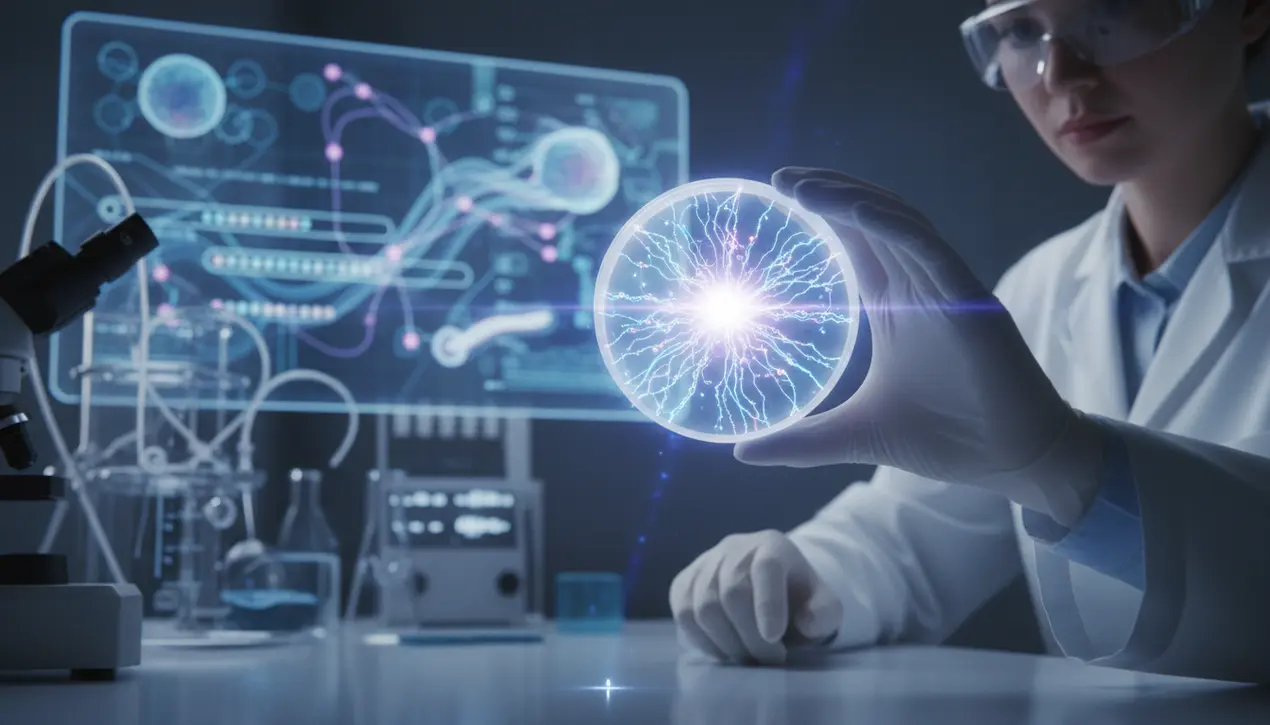
Scienceneuroscience
Scientists Engineer Biological Nanopores Capable of Brain-Like Learning and Memory
KE
Kevin White
4 hours ago7 min read2 comments
A groundbreaking study from École Polytechnique Fédérale de Lausanne (EPFL) has unlocked the engineering principles behind biological nanopores, enabling the creation of molecular channels that exhibit a fundamental form of learning. Researchers have demystified the long-perplexing fluctuations in these ubiquitous biological gates, identifying that two key behaviors—rectification (controlling ion flow direction) and gating (an on-off switch function)—are governed by the precise arrangement and dynamic interaction of electrical charges within the pore's interior.This foundational insight allowed the team to perform a feat of molecular engineering: designing and constructing custom nanopores that can modify their conductance based on past ionic activity. This creates a primitive, ion-based memory, effectively mimicking a brain-like learning mechanism at a molecular level.The discovery heralds a new era in bio-inspired computing, or 'iontronics,' where future processors could leverage ions flowing through tailored biological gates instead of electrons in silicon. This paradigm shift points toward computational systems with the unparalleled energy efficiency and parallel processing capabilities of a neural network.The implications are vast, paving the way for ultra-sensitive, adaptive diagnostic sensors, novel brain-machine interfaces, and a new class of sustainable, low-energy intelligent systems that learn and adapt in ways traditional electronics cannot. This research provides a crucial engineering toolkit for building dynamic biomimetic devices, marking a pivotal step in harnessing life's principles for next-generation technology.
#featured
#bacterial nanopores
#brain-like learning
#bio-inspired computing
#ion-based processors
#EPFL research
Stay Informed. Act Smarter.
Get weekly highlights, major headlines, and expert insights — then put your knowledge to work in our live prediction markets.
Related News
© 2025 Outpoll Service LTD. All rights reserved.
